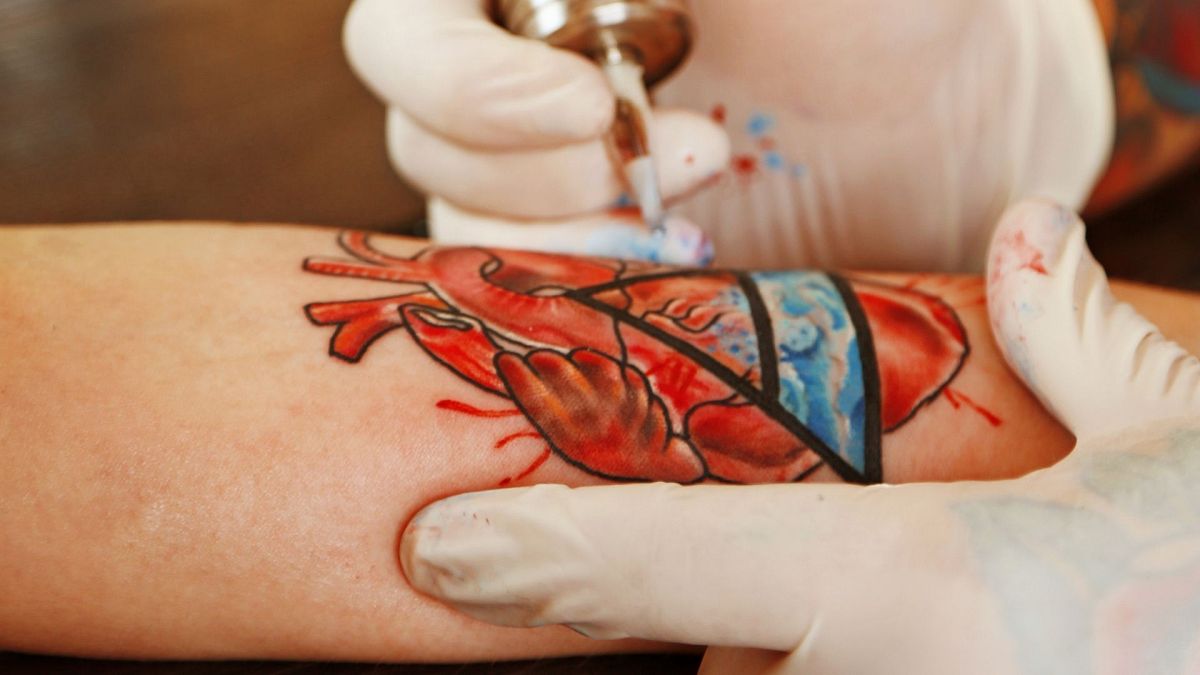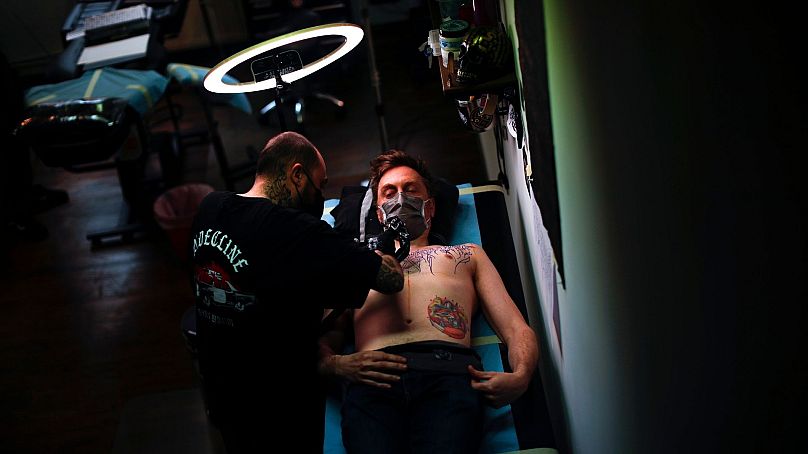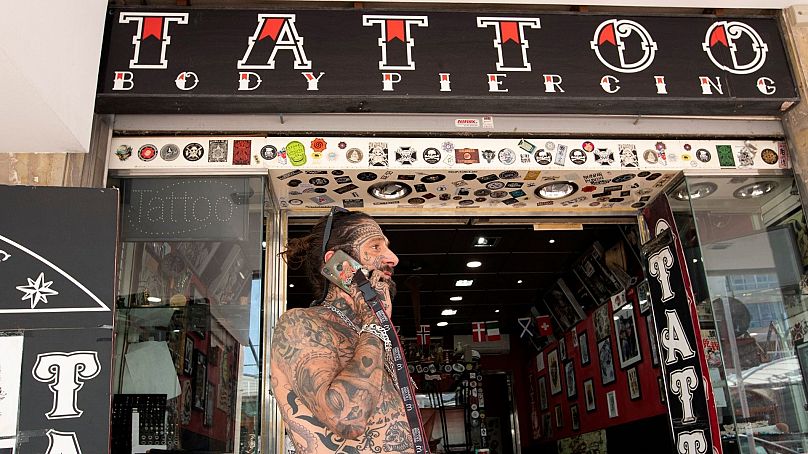The EU Commission argues that tattoo artists have had plenty of time to prepare for the switch. A petition surpassing 160,000 signatures begs to differ.
Tattoo parlours say the vibrancy of their art is being threatened after EU rules banning thousands of ink-colouring chemicals kicked in on Wednesday.
The 27-nation bloc argues that public health will be much better served with tougher restrictions on elements in ink that they say may cause cancer or allergies.
The standoff between regulation and freedom of artistic expression has triggered a torrent of complaints and accusations.
In Amsterdam, Tycho Veldhoen has plied his trade for a quarter of a century and fears an “enormous impact" on his work once certain colours are banned.
“Because, like a painter, you suddenly lose a gigantic part of your palette” with no alternatives in sight.
4,000 chemicals have been prohibited in total. He warned that it could even get worse next year when more inks currently in use could be banned.
Tattoo shops in the EU have had a rough two years since COVID-19 hit with restrictions and lockdowns. Now they say a perfectly avoidable crisis is hitting them even harder.
“It is all rather sudden," Veldhoen said. “There should have been a lot more preparation.”
Why is this happening?
The EU begs to differ on this matter. They argue that a public consultation process began in 2016.
Following that, the law was agreed upon in December 2020 but the industry was given a year to adjust and find alternatives.
At least 12 per cent of Europeans have tattoos – that's 54 million people. That percentage is doubled in the 18-35 age group, pushing regulators to create stricter health guidelines they deem necessary.
“This is not something which is either a surprise or a complete novelty," says EU spokesman Eric Mamer.
"Seven EU nations already had national restrictions. It is a sort of generalisation of practice which is already existing in quite a few member states."
Currently, there is no scientific evidence directly linking any tattoo inks to cancer.
Despite this, the UK is now said to be following suit and researching a similar ban.
The Commission says alternatives to the banned products do exist but tattoo parlours say they’re too slow to make their way from the manufacturers to their shops.
Angelo Bedani of Brussels’ Boucherie Moderne tattoo parlour said he had nothing to prepare with since the new inks had only become available a week ago. On top of that “a bottle costs double compared to the one we have today.”
Gwenaelle Reaume, the secretary of the Tattoo Belgium association, said the COVID-19 pandemic had held up research and production, calling on the government for more time.
While her salon had ordered inks from new, approved suppliers in time, many of her colleagues' needles had run dry, she said. Still, her client Anne Keyen said she was not unduly worried about her existing tattoos.
"They put all sorts of things which aren't good for health in food, and then they come after tattoo ink. I admit that, as someone with tattoos, I don't understand this law," she explained.
A move met with strong opposition from Europe's tattooing community
The EU's chemical agency ECHA says that allergic and inflammatory skin reactions “are expected to decrease thanks to the restriction.”
It adds that “more serious effects such as cancer, harm to our DNA or the reproductive system potentially originating from chemicals used in the inks could also decrease.”
Michl Dirks, who is behind a 'Save the Pigments' petition which has already collected 176,000 signatures in the EU objects to such conditional phrasing and insists the ban is not sufficiently backed by science, something which the EU disputes.
Erich Maehnert, co-organizer of the petition, said such bans unduly hurt the industry since people will use illegal ways to get the products from third countries.
“They continue to obtain their tattooing products without any checks and without the possibility of tracing them,” he said. Others say the small tattoo industry is easily targeted while the tobacco and alcohol industries still hold much more sway.
The petition pair is already preparing for the next battle. Up to now pigments Blue 15 and Green 7 are still enjoying a grace period until next year because no alternatives are yet available.
Veldhoen said it leaves him with awful choices when a customer will walk into his Amsterdam shop.
“A rose with brown leaves is a lot less attractive than a rose with green leaves."





